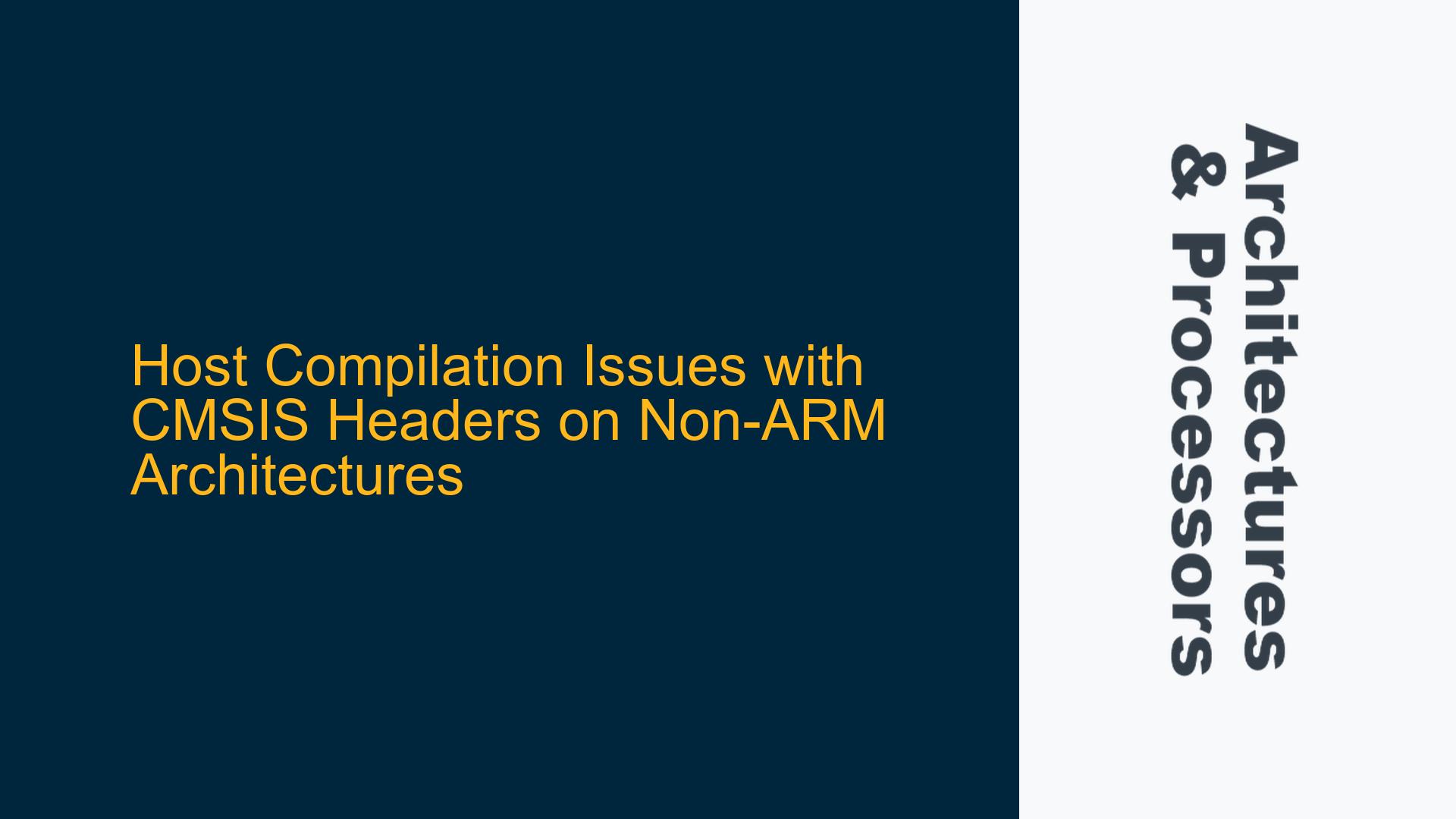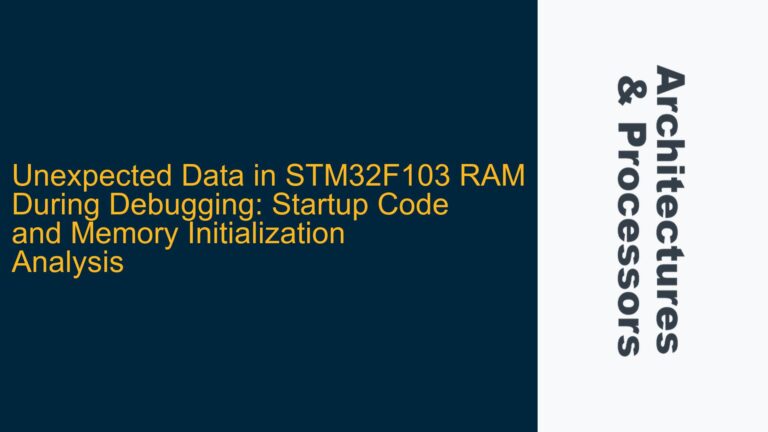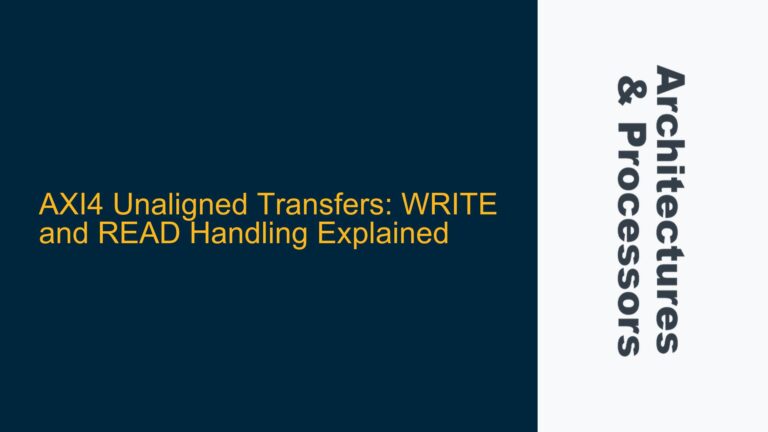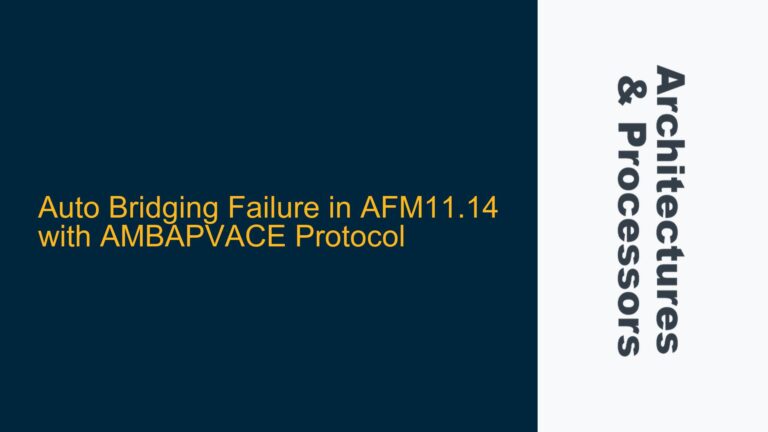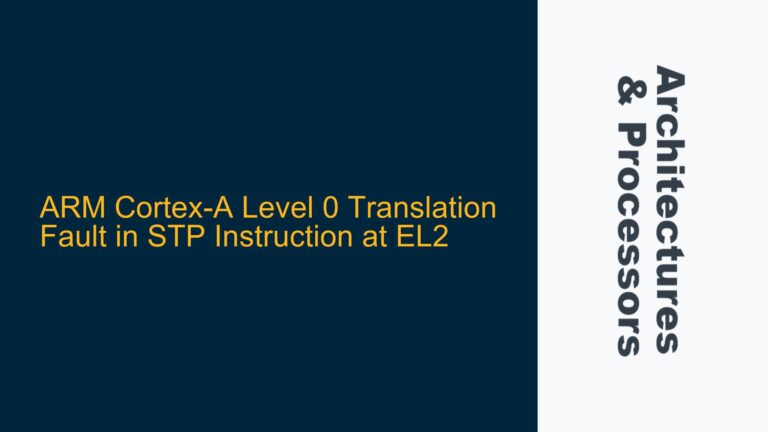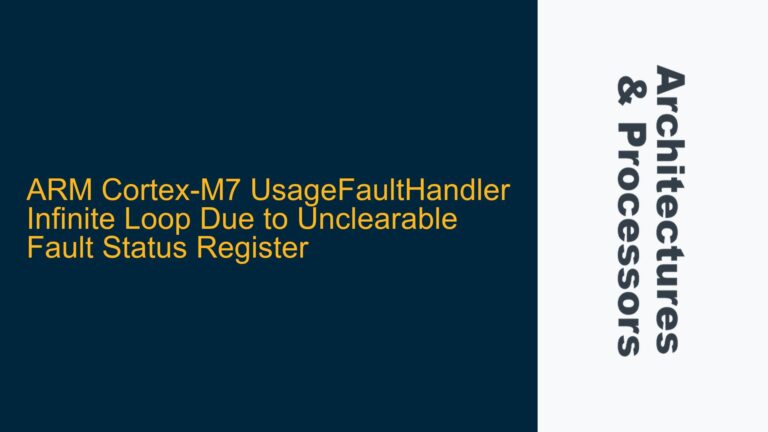ARM Cortex-M4 CMSIS Header Function Definitions Causing Cross-Compilation Failures
The core issue revolves around the challenges of compiling code that includes CMSIS (Cortex Microcontroller Software Interface Standard) headers on a non-ARM host system, specifically an Intel-based laptop. The CMSIS headers, particularly those for the Cortex-M4 and GCC, define a multitude of functions directly within the header files. These functions often include ARM-specific assembly instructions, which are unrecognizable to non-ARM compilers like those used on Intel-based systems. This creates significant hurdles for developers aiming to perform unit testing, static analysis, and quality assurance checks on their embedded code without relying on the actual ARM hardware.
The problem is exacerbated by the fact that the vendor-provided header file, board.h, includes the CMSIS Core header for the Cortex-M4. This header, in turn, includes the CMSIS GCC header, which defines ARM assembly aliases. The vendor header also relies on vendor-specific types and preprocessor constants defined in the CMSIS headers. This tight coupling between the vendor header and the CMSIS headers makes it difficult to decouple the two for the purpose of host-based compilation and testing.
The immediate consequence is that developers cannot compile their code on non-ARM systems without encountering errors related to undefined ARM assembly instructions. This limitation severely impacts the development workflow, as it forces developers to either rely on the actual hardware for basic compilation checks or maintain a separate, potentially out-of-sync, set of headers for host-based testing.
CMSIS Header Design and Cross-Platform Compilation Constraints
The root cause of the issue lies in the design of the CMSIS headers, which are inherently tailored for ARM architectures. The CMSIS headers define functions and macros that are specific to ARM processors, including low-level operations that are often implemented as ARM assembly instructions. These definitions are embedded directly within the headers, making them unsuitable for cross-platform compilation on non-ARM systems.
One of the primary culprits is the CMSIS GCC header, which defines aliases for ARM assembly instructions. These aliases are essential for optimizing performance on ARM targets but are meaningless to non-ARM compilers. For example, the CMSIS GCC header might define a function like __enable_irq() as an alias for the ARM assembly instruction CPSIE I. When this header is included in a project being compiled on an Intel-based system, the compiler will fail to recognize the ARM-specific instruction, resulting in a compilation error.
Another contributing factor is the tight integration between the vendor-provided header (board.h) and the CMSIS headers. The vendor header not only includes the CMSIS Core header but also relies on types and macros defined within it. This creates a dependency chain that is difficult to break without significant refactoring. For instance, the vendor header might use an enumeration type defined in the CMSIS header to specify interrupt numbers. This tight coupling makes it challenging to create a host-compatible version of the header that excludes ARM-specific definitions.
The problem is further compounded by the need for rigorous quality assurance processes, which often require compiling the code with maximum pedantry on the host system. This includes static analysis, unit testing, and other checks that are best performed on a development machine rather than the target hardware. The inability to compile the code on the host system due to ARM-specific definitions in the CMSIS headers undermines these quality assurance efforts.
Strategies for Decoupling CMSIS Dependencies and Enabling Host Compilation
To address the issue of cross-compilation failures caused by CMSIS header dependencies, several strategies can be employed. These strategies aim to decouple the ARM-specific definitions from the host-compatible code, enabling developers to perform unit testing and quality assurance checks on non-ARM systems.
Conditional Compilation and Header Abstraction
One approach is to use conditional compilation to exclude ARM-specific definitions when compiling on a non-ARM host. This can be achieved by introducing a preprocessor directive that checks the target architecture and selectively includes or excludes certain sections of the CMSIS headers. For example, the CMSIS GCC header could be modified to wrap ARM-specific definitions in a conditional block:
#ifdef __ARM_ARCH
#define __enable_irq() __asm volatile ("CPSIE I" : : : "memory")
#else
#define __enable_irq() // No-op or alternative implementation for host
#endif
This approach allows the same header to be used for both ARM and non-ARM targets, with ARM-specific definitions being excluded when compiling on the host. However, this requires modifying the CMSIS headers, which may not be feasible if the headers are provided by a third party or are part of a standardized library.
An alternative is to create an abstraction layer that separates the ARM-specific code from the rest of the application. This abstraction layer can be implemented as a set of wrapper functions that provide a consistent interface for both ARM and non-ARM targets. For example, instead of directly calling __enable_irq(), the application would call a wrapper function enable_interrupts(), which is implemented differently depending on the target architecture:
// ARM target implementation
#ifdef __ARM_ARCH
void enable_interrupts() {
__enable_irq();
}
#else
// Host implementation
void enable_interrupts() {
// No-op or alternative implementation
}
#endif
This approach allows the application code to remain architecture-agnostic, with the ARM-specific details being encapsulated within the abstraction layer. However, it requires additional effort to implement and maintain the abstraction layer, and it may not be practical for all use cases.
Mocking and Stubbing for Unit Testing
Another strategy is to use mocking and stubbing techniques to simulate the behavior of ARM-specific functions during unit testing on the host. This involves creating mock implementations of the CMSIS functions that can be linked with the application code during testing. For example, a mock implementation of __enable_irq() could be defined as follows:
// Mock implementation for unit testing
void __enable_irq() {
// No-op or simulated behavior
}
These mock implementations can be placed in a separate header or source file that is included only during unit testing. This allows the application code to be compiled and tested on the host without requiring ARM-specific definitions. However, this approach requires careful management of the build configuration to ensure that the correct implementations are used during testing and production.
Custom Build System Configuration
A more advanced solution involves configuring the build system to handle different target architectures and build configurations. This can be achieved by using build tools like CMake or Make to define different build targets for ARM and non-ARM systems. For example, the build system could be configured to include different headers or source files depending on the target architecture:
if(CMAKE_SYSTEM_PROCESSOR MATCHES "arm")
target_include_directories(my_project PRIVATE ${CMSIS_INCLUDE_DIR})
else()
target_include_directories(my_project PRIVATE ${HOST_COMPATIBLE_INCLUDE_DIR})
endif()
This approach allows the build system to automatically select the appropriate headers and source files for each target architecture, reducing the need for manual intervention. However, it requires a more complex build configuration and may not be suitable for all development environments.
Vendor Header Refactoring
In some cases, it may be necessary to refactor the vendor-provided header (board.h) to reduce its dependency on ARM-specific definitions. This could involve extracting the types and macros that are needed for host-based compilation into a separate header file, while keeping the ARM-specific definitions in a separate file. For example, the vendor header could be split into two files:
// board_types.h - Contains types and macros needed for host compilation
typedef enum {
IRQ_NUM_1,
IRQ_NUM_2,
// ...
} InterruptNumber;
#define BOARD_CLOCK_FREQ 16000000
// board.h - Includes ARM-specific definitions
#ifdef __ARM_ARCH
#include "cmsis_gcc.h"
#endif
#include "board_types.h"
This approach allows the host-compatible types and macros to be included in the host-based compilation, while the ARM-specific definitions are excluded. However, it requires coordination with the vendor to ensure that the header files are maintained correctly and that any changes to the original header are reflected in the refactored versions.
Conclusion
The challenge of compiling code that includes CMSIS headers on non-ARM host systems is a complex issue that requires careful consideration of the trade-offs involved. By employing strategies such as conditional compilation, header abstraction, mocking and stubbing, custom build system configuration, and vendor header refactoring, developers can decouple ARM-specific dependencies and enable host-based compilation and testing. Each approach has its own advantages and limitations, and the best solution will depend on the specific requirements and constraints of the project. Ultimately, the goal is to strike a balance between maintaining compatibility with the target hardware and enabling efficient development and testing on the host system.
